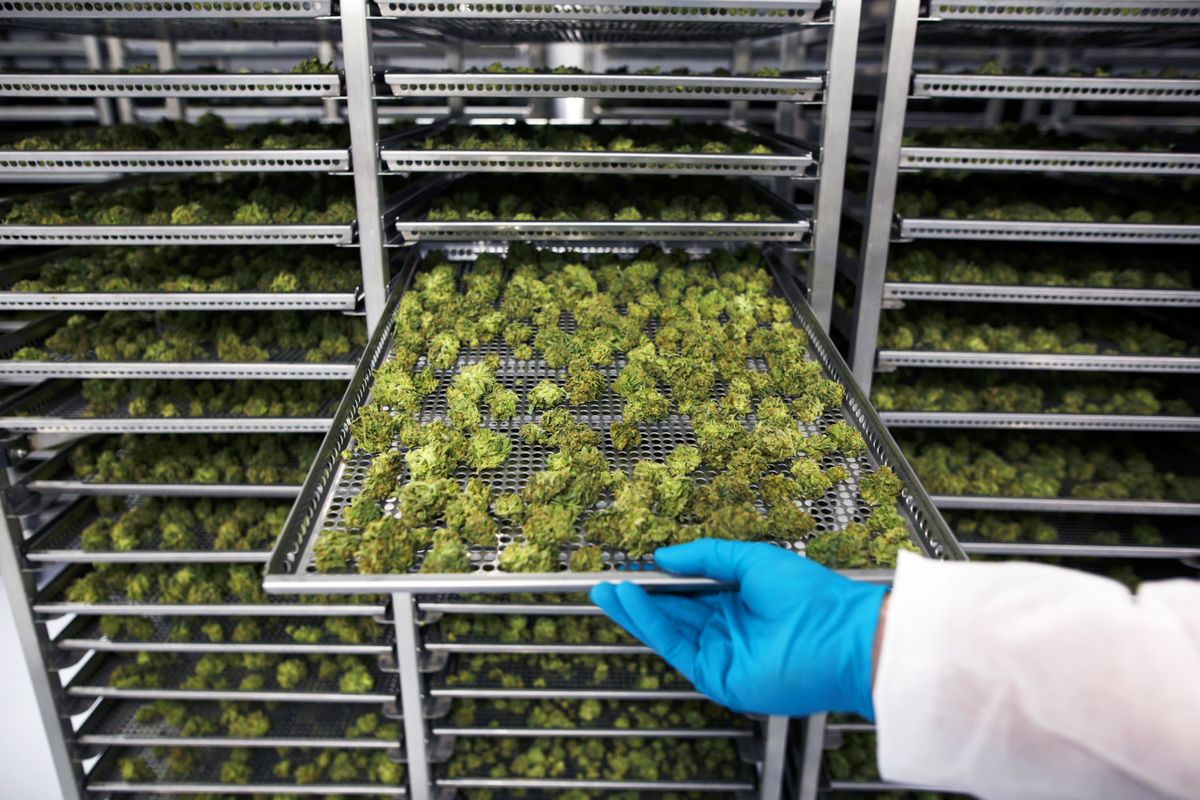Doug Ford almost got it right on cannabis

Ontario Premier Doug Ford should be congratulated for improving Ontario’s marijuana market structure last week. He decided to privatize the retailing of marijuana in the province. That decision represents a reversal of the previous government’s choice to place retailing in the hands of a high-cost government monopoly. This is good news.
However, he also decided to leave a government agency front and centre in the wholesaling of cannabis. Having gone some way to free up entrepreneurial energies and create an expansive marketplace, he balked at the idea that this market could function well without a monopsony, or a single buyer, at its core. For the benefit of Ontarians, the government should go further, and, in particular, look at successful and safe cannabis market models that have been developed south of the border. Mistakes have been made and lessons have been learned there, and Ontario can benefit from that history. In Colorado for instance, the present combination of moderate taxes, multiple retail outlets and extraordinarily active laboratory testing has led to the virtual elimination of the illegal market. The success in legalizing this market is documented in the most recent report from the Marijuana Policy Group in Denver.
A wholesale monopoly, as is proposed for Ontario, has several drawbacks. First, it suffers from an excess of power. It determines which producers will sell to it and which will not. It is also less complex for a single buyer to deal with a small number of suppliers than a large number. Consequently, small producers and product variety will be the losers. In several provinces, the state monopoly on liquor and wine means that it is easier for a large multinational winemaker from Australia to gain access to the market than it is for a winery in British Columbia, the Eastern Townships or the Niagara Peninsula.
Hence large producers – “Big Cannabis” – will gain from this structure, and small artisanal marijuana will live a hazardous existence. If the latter were to have direct access to retail, we could be sure that a vibrant industry composed of hundreds of small producers would survive. Just this week the Ontario Cannabis Store announced that it would deal with just more than two dozen suppliers. In contrast, Oregon, Washington State and Colorado, with a combined population slightly greater than Ontario, each has in excess of 500 suppliers.
Second, the positioning of an additional agency will add to the cost of distribution and ultimately to the price paid by the end user. It is a universal “given” that if the price charged to the user is much above the street price then the illegal market will continue to thrive. This is a particular concern in most of Canada, where the price of cannabis is low by international standards. Statistics Canada’s Cannabis Hub data on cannabis prices indicate that in some urban centres the price of a gram is as low as $5.
Third, there is little to justify the existence of a monopoly wholesaler from a safety standpoint. A report from the Colorado Department of Revenue (Marijuana Enforcement Division) indicates that, in 2017, about 150,000 tests on content and potential contaminants were carried out. Unsurprisingly, this system has resulted in a high-quality, low-variance product. Since producer and retail licences must be renewed every few years, both the vendors and producers have a strong incentive to ensure their product is what it is supposed to be. Periodically, licence renewals are denied; this not only takes sub-quality actors out of the system, it serves as signal to others that they could be next if they do not conform to appropriate standards.
As a counterpoint: The craft brewing industry in Canada has been an enormous success. Imagine the outcome if, at some point in the 1990s, the Ontario government had decided that “in the interests of a safe supply” all sales would have to transit through a government wholesale monopoly, and that monopoly, staffed by bureaucrats, would decide which products would reach the consumer and which would not.
Mr. Ford, for the benefit of all Ontarians – particularly “the little guy” – should take a second giant step in producing a vital and successful market: by eliminating the Ontario Cannabis Store monopsony and replacing it with a system of rigorous quality testing.
420 Intel is Your Source for Marijuana News
420 Intel Canada is your leading news source for the Canadian cannabis industry. Get the latest updates on Canadian cannabis stocks and developments on how Canada continues to be a major player in the worldwide recreational and medical cannabis industry.
420 Intel Canada is the Canadian Industry news outlet that will keep you updated on how these Canadian developments in recreational and medical marijuana will impact the country and the world. Our commitment is to bring you the most important cannabis news stories from across Canada every day of the week.
Marijuana industry news is a constant endeavor with new developments each day. For marijuana news across the True North, 420 Intel Canada promises to bring you quality, Canadian, cannabis industry news.
You can get 420 Intel news delivered directly to your inbox by signing up for our daily marijuana news, ensuring you’re always kept up to date on the ever-changing cannabis industry. To stay even better informed about marijuana legalization news follow us on Twitter, Facebook and LinkedIn.




